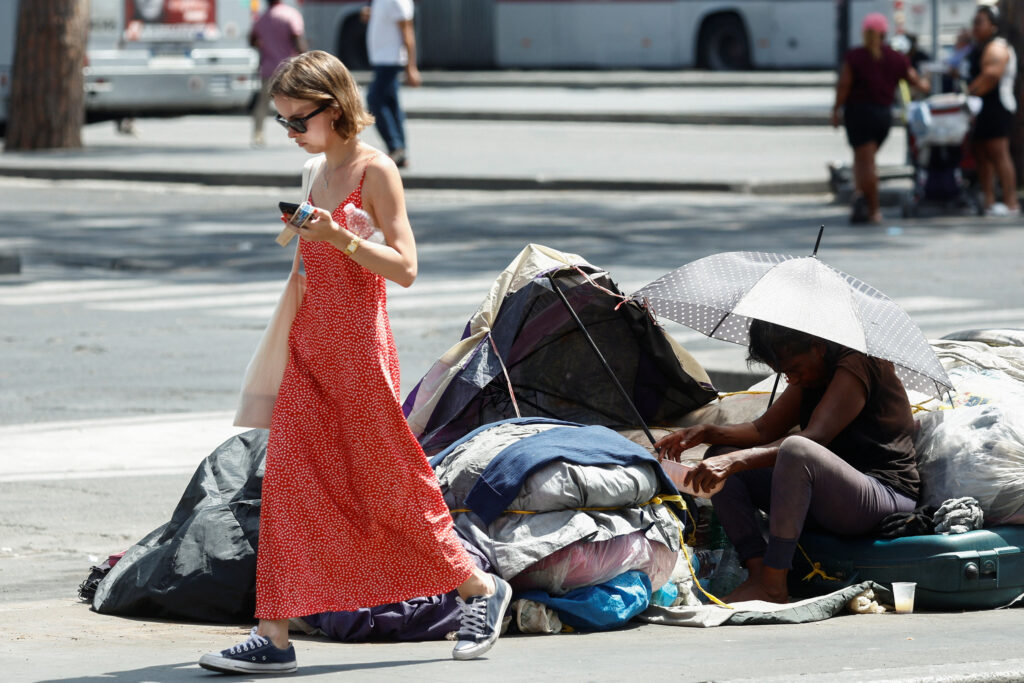by Volker Macke
According to a new British study, people experiencing homelessness have, by the age of 43, an average state of health equivalent to that of an 85-year-old with a home. Common health complaints include heart disease, respiratory issues, organ damage and infections caused by poorly healing wounds. Heat waves can also be as fatal for people sleeping rough as they are for elderly people.
For years, the beginning of spring marked a great sigh of relief in German local authorities’ social services and public order departments if nobody had frozen to death over the winter. Winter emergency aid programmes, including night cafés, cold weather buses and soup kitchens, were initiated to ward off the worst risks to people experiencing street homelessness, often – though not always – with success. But now, the climate crisis has brought new dangers.
“Heat is just as dangerous as cold,” says Berit Pohns, spokesperson for the National Federation for the Homeless in Germany (BAG W). The nationwide umbrella organisation of major homelessness aid providers such as Caritas, Diakonie, Paritätische and AWO is currently increasing the pressure on politicians to focus on the dangers of long, warm summers in addition to the almost established winter emergency aid.
“We have called on local authorities to take greater account of people experiencing homelessness in their heat protection plans,” emphasises Pohns. “We are still of the opinion that there is not enough focus on protection against heat.”
Federal Health Minister Karl Lauterbach presented an initial heat protection plan for Germany in the summer of 2023. However, it was largely concerned with recommendations for action, particularly for so-called vulnerable groups, including elderly people, young children and people experiencing homelessness. His recommendations: drink plenty of water, keep your home cool, stay in the shade, avoid exertion, and eat light food.
But for people living on the streets, shelter and shade are in short supply. Many people sleep rough in the concrete jungles of city centers, close to aid facilities. Most of the shade available is on private property, from which people can be excluded by barriers or security services, leaving them exposed to the sun.
The health of people on the streets is already a cause for concern: after analyzing a large number of individual health studies from over 30 countries, a group of scientists led by London-based public health researcher Robert Aldrigde came to the conclusion that people experiencing street homelessness have an almost 12-fold higher risk of heat-related death than the general population.
“The extreme health inequalities identified require intensive cross-sectoral policy and service interventions to prevent exclusion and improve health outcomes for people who are already marginalized,” the report states.
BAG W is calling for free drinking water for people on the streets in every city in Germany as the first and most important action in providing heat relief. “In addition, cool rooms must be made accessible. At present, the problem is not being tackled systematically enough. This is what we would like to see,” says Pohns. “If a person experiencing homelessness is cooling off or seeking shade in a park, underground or public building, they should not be evicted.”

Courtesy of Asphalt / INSP.ngo

